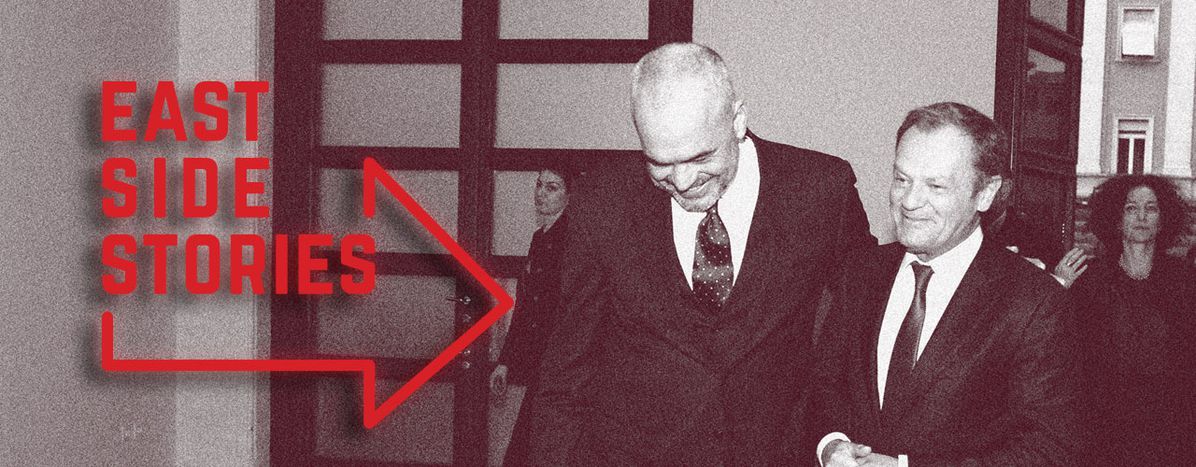
Could the Brexit Earthquake have an Albanian aftershock?
Published on
The earthquake of the British referendum has sent shockwaves through both the United Kingdom and the Old Continent as a whole. The UK voted to leave the European Union. With the future of the Union now uncertain, new challenges lie ahead. This outcome could damage both the EU and Britain economically and politically, and Albania will not be spared these effects.
Michael Gove’s "Albania Model" for prosperity
The "Leave" campaigners initially implicated Albania and other Balkan countries when they implied that once Britain left the EU, it should try to create a "free-trade zone" with Albania, Bosnia and Serbia.
The mastermind of this idea was Michael Gove, now standing for Conservative leadership in the wake of David Cameron's resignation. He stated, "There is a free-trade zone stretching from Iceland to Turkey that all European nations have access to, regardless of whether they are in or out of the euro or the EU. After we vote to leave we will remain in the zone. The suggestion that Bosnia, Serbia, Albania and Ukraine would remain part of this free-trade area – and Britain would be on the outside with just Belarus – is as credible as Jean-Claude Juncker joining Ukip."
However, the Albanian Prime Minister, Edi Rama, gave a swift response, "When I saw the story of Michael Gove suggesting that Britain could abandon its partnership with Germany, France and other EU countries and instead enter into a non-EU partnership with Albania, Kosovo, Serbia and Bosnia, my immediate reaction was: ‘Isn’t that a bit weird?'" In his speech he made it clear that Albania doesn’t want to form a trading block with the EU, because his country's objective is in fact to join the Union.
The tremors reach the Balkans
The United Kingdom has given substantial support for the Balkans Euro-Atlantic integration agenda, and it's important for the region that this commitment remains unchanged. Brexit, on the other hand, has strengthened the positions of Eurosceptic parties among member states, which could translate into a stalling of the EU's enlargement agenda, especially when it comes to the Balkans.
Albania's European integration process deeply depends on the necessary reforms laid out by the EU before accession can take place. Both Albanian and Brussels officials say that once judicial reforms have been voted through parliament, the country can carry on to the negotiation phase. It's worth mentioning that the Union has a crucial role in this reform process and financial investments in the country. EU guidelines, especially when it comes to judicial reform, have been of great importance when reaching an agreement between the government and opposition. The EU Head of Mission in Albania was personally involved in this dialogue and high level talks have been carried out throughout the whole process.
With Brexit now becoming a reality, the EU's attention could shift towards its internal issues – something Albania is well aware of. Less attention will be paid to the EU enlargement process for the Western Balkan countries, because things need to be put in order closer to home. This is not good news for aspiring member states in the Balkans, Albania included, because without political will, there can be little hope. Prominent EU representatives will soon meet with the high official from the Balkan countries in Paris, to go ahead with the Berlin Process designed to make Balkans accession a reality. The messages that emerge from this Paris summit will test the waters of EU enlargement policy post-Brexit.
It seems certain that the direct consequences will be first felt in those countries with which Britain has close trade relations, but experts fear an economic chain reaction that could also affect Albania, adding that the EU may not be interested in funding projects in the country without first solving "domestic" issues.
There also remains the fear of a nationalistic revival in the Balkans region, taking into consideration the breakout of right-wing parties across the EU, who position themselves against enlargement policies and for the dissolution of the Union itself.
One thing is sure: we're entering turbulent waters. Only the leading countries within the EU can help to steer the ship. As we wait and see, now is the time for reflection.
---
This article is part of our East Side Stories project. Through fighting the most common clichés levelled at Southern and Eastern Europe, it aims to keep the European idea alive by raising awareness, creating dialogue, exchanging ideas and reporting beyond the mainstream media.




